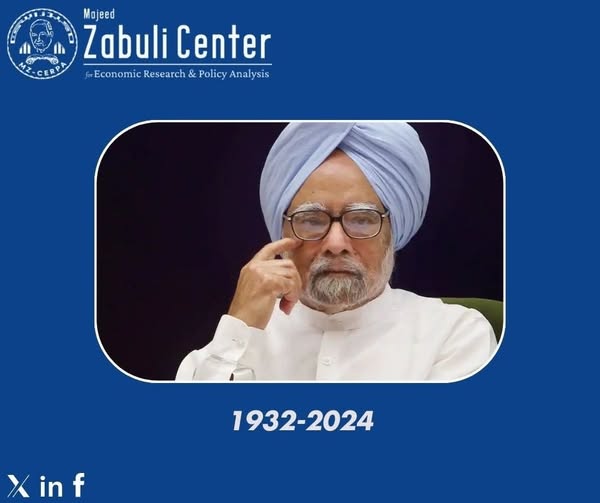19 Jan,26
Most Searched Keywords
07 Aug
Who Was Manmohan Singh, and What Can Afghans Learn from His Achievements?

Manmohan Singh was a distinguished Indian economist and politician, born in 1932 in Chakwal, Punjab (now in present-day Pakistan). He became India’s Finance Minister in 1991 and later served as the Prime Minister from 2004.
Dr. Singh was not only a renowned academic but also a transformative leader who used his economic knowledge to bring about a major economic revolution in India. He played a key role in rescuing India from a deep economic crisis.
In 1991, when Singh had just been appointed as the Finance Minister, India was facing a severe economic downturn. At that time, the country’s foreign exchange reserves were so low that they could barely cover two weeks of imports.
Amid this crisis, Dr. Singh introduced modern economic policies that revived the Indian economy. His reforms triggered an economic transformation that eventually placed India among the world’s major economies.
To address the crisis, Dr. Singh eliminated the requirement for business licenses, encouraged foreign direct investment, eased trade restrictions, and implemented several similar reforms that fundamentally altered the direction of India’s economy.
What Can Afghanistan Do to Overcome Its Current Economic Challenges?
Afghanistan can take several strategic steps to overcome its ongoing economic difficulties. It can start by making effective use of its natural resources, such as mineral reserves and agricultural products. In addition, the country must attract foreign investors and implement essential programs to boost domestic production.
Furthermore, Afghanistan should pursue agreements with advanced nations to import modern technologies related to agriculture and encourage both domestic and foreign investors to establish new processing factories. These steps would create employment opportunities for a large portion of the population.
On the other hand, Afghanistan must negotiate export agreements with other countries especially those that include tariff reductions or exemptions. This would result in a significant increase in the country’s export levels.
